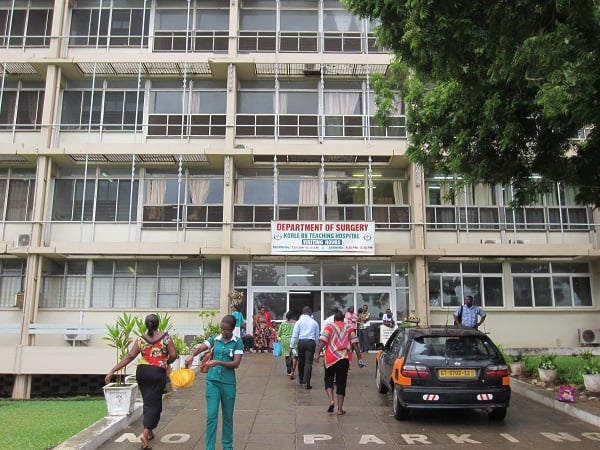Cancer casts a long shadow over the African continent, claiming thousands of lives each year. The alarming statistics reveal a stark reality: Africa records over 24,000 new cancer cases annually, with Ghana’s premier healthcare facility, Korle Bu Teaching Hospital, documenting a staggering 700 cases every year since 2005. This grim picture underscores the urgent need for comprehensive strategies to combat this devastating disease. A recent cancer research symposium, held under the auspices of Precision Medicine for Aggressive Breast Cancers (PMABC), aimed to delve into the unique characteristics of African cancers and explore avenues for improved treatment outcomes. The discussions centered on the critical role of collaborative research in enhancing patient care and developing effective treatments across the continent.
The PMABC initiative represents a beacon of hope in the fight against cancer in Africa. Its mission is clear: to empower institutions and researchers across Sub-Saharan Africa, equipping them with the necessary tools and expertise to reduce the cancer burden through advanced research and improved delivery of care. This capacity-building effort is pivotal in bridging the gap in cancer research and treatment between Africa and other regions of the world. By fostering collaboration and knowledge sharing, PMABC strives to create a sustainable impact on cancer outcomes for diverse populations worldwide.
The financial burden of cancer treatment poses a significant challenge for African patients. Dr. Hannah Naa Gogwe Ayettey, Consultant Oncologist at Korle Bu Teaching Hospital and General Secretary of the African Organisation for Research and Training in Cancer (AORTIC), highlighted the socio-economic hardships faced by patients due to the high cost of treatment. While genetic factors play a role in cancer prevalence, the economic realities often prevent patients from accessing timely and effective care. Dr. Ayettey’s call for increased awareness and early hospital care underscores the need for a multi-pronged approach that addresses both the medical and socio-economic aspects of cancer management.
Early detection emerges as a recurring theme in the fight against cancer. Dr. Miriam Mutebe, President of AORTIC, emphasized the importance of early diagnosis, asserting that many cancer cases are potentially treatable and curable if detected in their initial stages. This highlights the crucial role of preventative measures, regular screenings, and public awareness campaigns in improving survival rates. Breast cancer, the most common diagnosis affecting young women in West Africa, serves as a testament to the power of early detection. Despite its prevalence, about 90 percent of patients survive due to early diagnosis and intervention.
The symposium, themed “Catalysing Basic and Translational Cancer in Africa: Advancing Progress and Capacity Building,” provided a platform for experts and researchers to converge and address the challenges posed by high-burden cancers, including breast, cervical, prostate, colorectal, and oesophageal cancers. This collaborative effort aims to accelerate research and translate scientific discoveries into tangible improvements in cancer care. The focus on capacity building underscores the long-term vision of equipping African institutions with the resources and expertise needed to tackle the cancer burden effectively.
The battle against cancer in Africa requires a concerted effort on multiple fronts. Investing in research, improving access to affordable treatment, and promoting early detection through widespread awareness campaigns are essential steps towards reducing the cancer burden and improving patient outcomes. Collaborative initiatives like PMABC and AORTIC play a vital role in driving progress and fostering hope in the fight against this devastating disease. The symposium serves as a call to action, urging stakeholders to unite and work towards a future where cancer is no longer a death sentence but a treatable and manageable condition. By empowering African scientists, healthcare professionals, and communities, we can pave the way for a healthier and more hopeful future for the continent.


